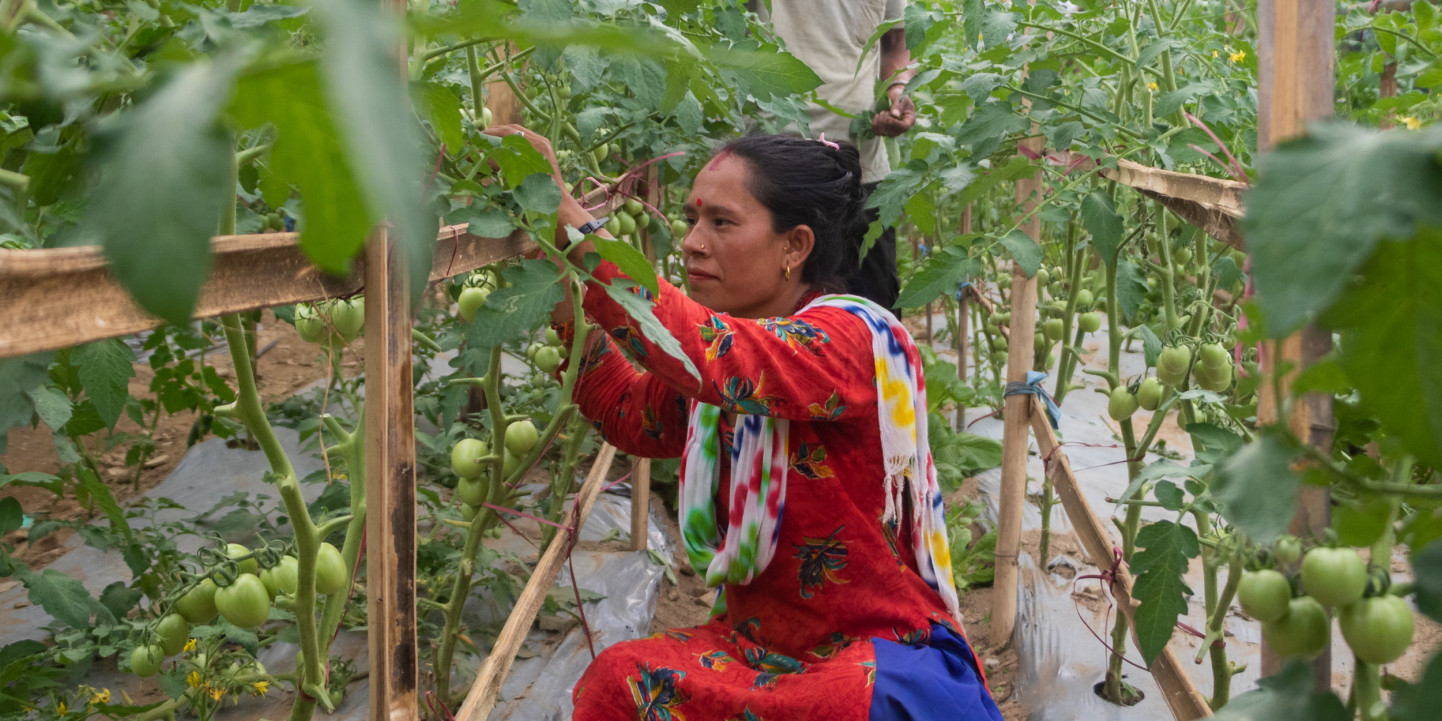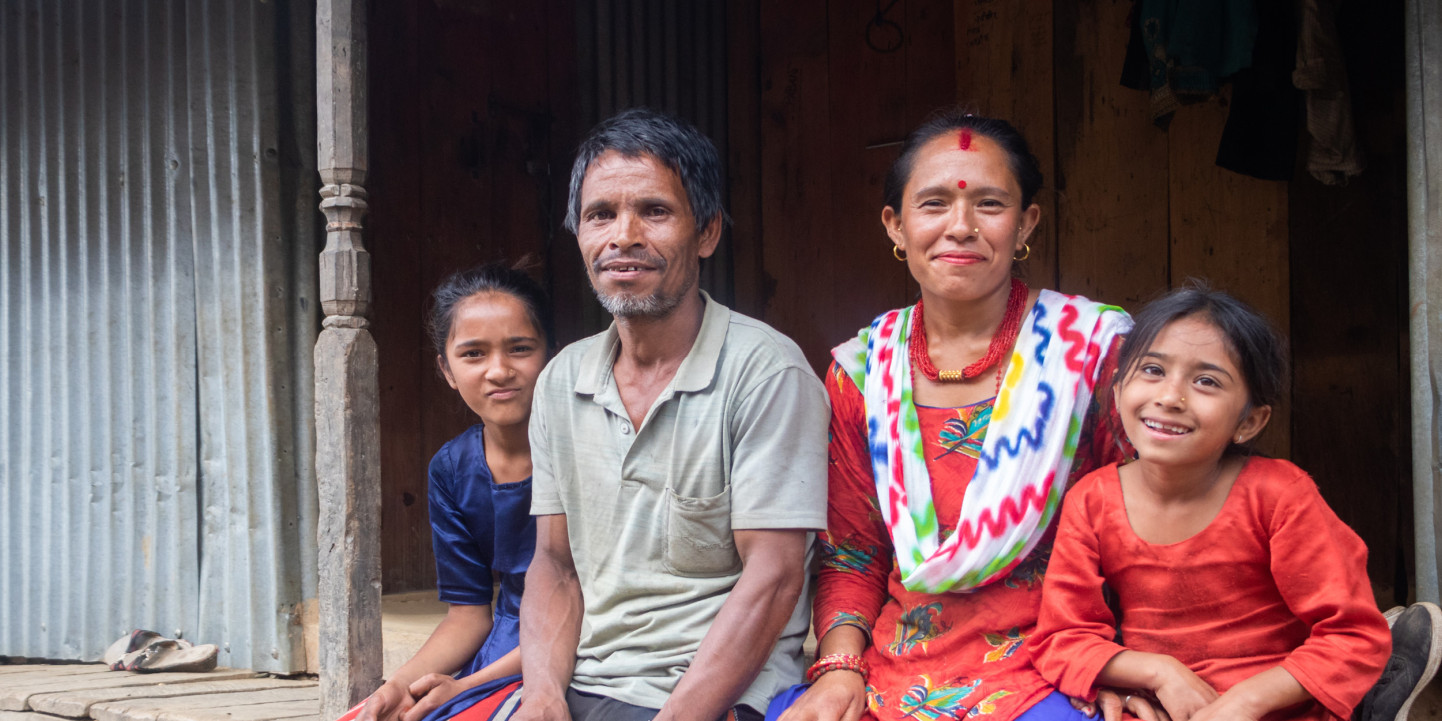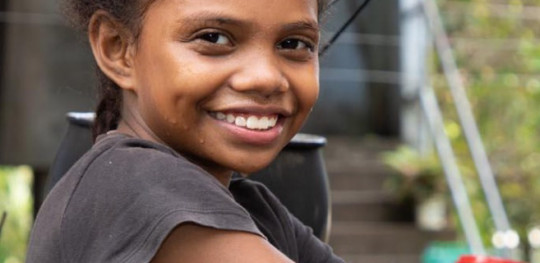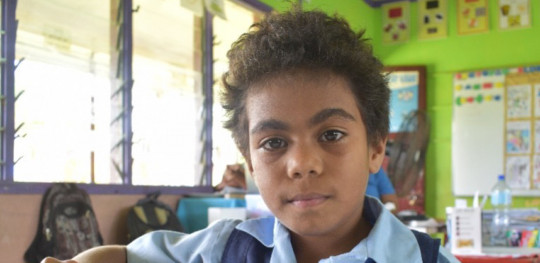Thanks to our regular givers we were able to commit to a five-year agricultural project in Nepal.
The Story of the Tomato and the School Room
What has a tomato got to do with children going to school? Well, everything! Check out how the commitment of our regular givers over the past five years has transformed the lives of communities living in one of the poorest regions of Nepal.
Meet Min Kumari!
Five years ago Min from the Udayapur region in Nepal could only grow food for six months of the year. Her husband was injured and couldn’t work, and her children didn’t have enough to eat. Giving them an education and a way out of extreme poverty seemed impossible. But today it’s a completely different story and that’s because of our regular givers.
When we started the project in 2014 whole villages were only growing maize, barley, and a few vegetables. Farmers were living hand to mouth and their average annual salary was only $587 NZD. Many children suffered from malnutrition because they were not getting enough of the right food to eat. School attendance was poor.
Helping Farmers to Increase Their Yields
However, over the years, our specialist teams have helped farmers learn how to increase their yields, build irrigation systems and, how to diversify their crops by growing more valuable products like tomatoes, mushrooms, and chillies. They learnt how to bring their products to market, and how to grow those markets so they could earn more cash to send their children to school and give them access to health care.
With the long-term commitment of our regular givers, slowly the crop yields increased, more farmers got on board, more markets started to open up, along with their opportunities and ambitions for their children. Five years later their average yearly incomes are now $2971 NZD, that’s nearly five times more income for families!
Min can now afford to feed her children properly, send them to school full time and take them to a doctor when they are sick.
“We have 16 ropanis of land [two acres] but we did not plant crops in all of it because we could not. We used to plant primarily maize and barley and that too used to be destroyed by monkeys. It was not even enough for us to eat for six months with the production. We consumed most of the produced maize and barley and could sell only if we had any left to sell. Now my son wants to be an engineer when he grows up. We plan to let our children study whatever they want in the future and the income we have now has allowed for us to be this confident.”
Our Work in Nepal
More than 1,100 farmers took part in the project. 64% of them are women and now they are sharing this knowledge with other farmers. They’re now known across the region as the vegetable growers. Not only has it increased their income, but also their social status. Many of the women farmers are respected and they have a voice within their communities.
Min Kumari told us that without the project they would have ended up heavily in debt. Now she doesn’t worry about her children having enough to eat, or that they will get sick because they can’t afford health care. Now she has options and choices, and she wants that for her children.
And it's all because generous New Zealanders decided to give a small amount of money, each month, over time.
That commitment has transformed the lives of children.





